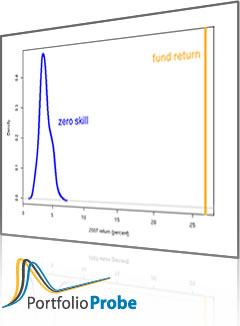The document is “Don’t stop believing: The state and future of UK occupational pensions” by Con Keating.
Overview
It seems to me that pensions are hard. Me, I just do easy things like write genetic algorithms for the fast, efficient generation of random portfolios and the optimization of portfolios. But Con gives pensions a go, and he says they aren’t actually so hard after all.
The present piece is a follow-on from “Don’t Stop Thinking About Tomorrow: The Future of Pensions”.
Just to make sure, here are explanations of two abbreviations:
- DB means “Defined Benefit”: when the worker retires, they get a specific amount.
- DC means “Defined Contribution”: the amount contributed is known, but the amount at retirement is whatever it comes out to be. 401(k) in the US is DC.
An occupational scheme is an arrangement where part of the employee’s wages, their compensation for supplying their skills and services to an employer, is deferred until the employee has retired.
Point of view
I’ve never known Con to be shy about stating a point of view. This paper is no exception.
The problem for individuals is that they cannot, with precision, know their own longevity … insurance eliminates the need to over-provide as precautionary saving against a long life, as the
consequence of under-provision would be penury at some point in old age. Over-provision is not efficient.Personal pensions, in which employees bear all of the risk, have even more serious shortcomings than DB.
I definitely agree with the above — I don’t profess to know the right answer, but DC is undoubtedly not it.
The idea has become prevalent that occupational defined benefit pension schemes are unaffordable and unsustainable.We find these beliefs unfounded.
groupthink has become wedded to financial market approaches
…rather than being a radical change to the economy, these demographic issues are headwinds which may feasibly and plausibly be surmounted.
With DB, there is an explicit promise of an income, albeit parametrically determined. Many have taken this, wrongly, to mean that a pension is ‘bondlike’
The current accounting standards are mixed attribute in the sense that liabilities are valued as discounted present values and assets at their market prices.
The result of this mixed attribute standard is that the estimates of deficits or surpluses of pension funds are wholly unreliable. Basing regulation upon them can be seen as pure folly
The penultimate paragraph is:
It is time to rewrite regulation to accommodate and encourage such forms of pension provision. A society with deferred pay is more civilised than one without. It is time to restore the incentives for employers to sponsor defined benefit pensions schemes.
Aside on liquidity and markets
Markets can be for liquidity and/or speculation.
Equity markets are mixed in nature: long-term investors buy assets in these markets to harvest their productive returns rather than with gain in market price in mind. For this investor class of participant, which of course includes pension funds, volatility of market price is unconditionally bad. By contrast, there is the speculative class of market participant, such as a hedger, where the security is purchased for its price potential, and for these speculator participants, volatility is welcome since it enlarges their opportunity set. This conflict between speculators and investors lies at the heart of the debate over high frequency trading.
Questions
Is Con right about:
- demography
- regulation
- valuation
- pension insurance
- civility
- …
Event
The public launch of the document will be at the Global Policy Institute in London 2011 September 28 at 5:45. Go to the Global Policy Institute website to register.
Epilogue
Why not think about times to come
from “Don’t Stop” by Christine McVie

Pingback: A call for unfunded pensions | Portfolio Probe | Generate random portfolios. Fund management software by Burns Statistics